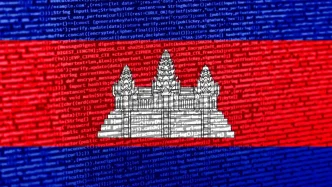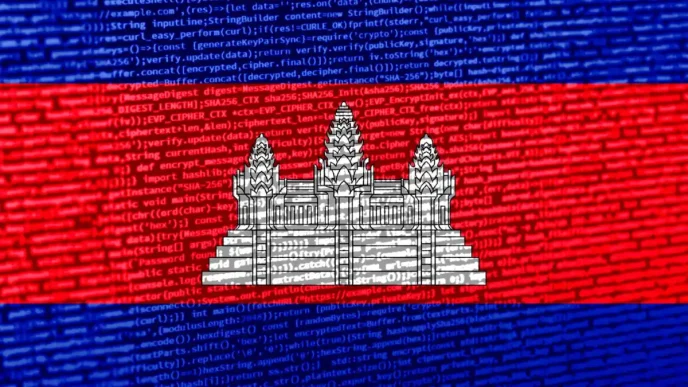In a significant move to address the chronic shortage of organs for transplantation, Vietnam’s Ministry of Health has proposed sweeping amendments to the Law on Donation, Removal, and Transplantation of Human Tissues, Organs, and Cadavers. The draft, unveiled in March 2025, seeks to expand eligibility for living and posthumous donations, introduce new benefits for donors, and establish clearer frameworks for costs and medical procedures. If passed, these changes could transform Vietnam’s organ donation landscape, where demand far outstrips supply despite the country having the highest transplant rate in Southeast Asia.
Expanding Eligibility for Living and Posthumous Donations
The proposed amendments lower the age threshold for certain types of tissue donation while maintaining strict safeguards. Under the current law, only individuals aged 18 and older with full civil capacity can register as living donors. The draft, however, allows individuals aged 16 and older to donate tissues such as kidneys or parts of the liver while alive, provided they have written consent from a legal representative or guardian. This change aims to increase the pool of potential donors, though it raises ethical questions about consent and maturity at such a young age.
For living organ donation to unrelated recipients, the draft sets a higher age limit of 30, requiring full civil capacity. Individuals aged 18 and older can donate organs to immediate family members—parents, children, or biological siblings—under the proposed rules. Posthumously, the amendments affirm that all individuals, regardless of age, have the right to donate tissues and organs after death, with those under 18 needing consent from a legal representative. Additionally, adults with full civil capacity can register to donate their bodies for medical research or education after death.
These provisions reflect a balance between humanitarian goals and protective measures, ensuring that vulnerable groups are not exploited. The Ministry of Health has emphasized that the amendments aim to align Vietnam’s policies with international standards while addressing local cultural sensitivities around death and bodily integrity.
Addressing Costs and Support for Donors
One of the draft’s key innovations is its detailed framework for covering costs associated with tissue and organ donation. For living donors, expenses such as medical examinations, biological testing, organ retrieval, and post-donation recovery will be subsidized or fully covered under the proposed law. For posthumous donations, costs related to resuscitation, organ function evaluation, and procurement will also be addressed, easing the financial burden on families.
Transplant recipients, meanwhile, will receive support for biological testing, surgical procedures, post-transplant recovery, follow-up examinations, and immunosuppressive medications. While the exact funding mechanisms remain unclear, the inclusion of these provisions signals a commitment to making transplantation more accessible to Vietnam’s population, many of whom face significant out-of-pocket healthcare costs.
Beyond financial support, the draft introduces incentives for blood and stem cell donors. These include priority access to blood transfusions at state-owned medical facilities—equivalent to the amount donated—and free provision of blood when needed. Blood donors will also be entitled to a half-day off work without salary deduction or impact on leave entitlements, provided they obtain employer consent. Stem cell donors, similarly, will gain priority access to stem cell sources from banks and receive comprehensive medical support, including free consultations, health check-ups, and necessary tests before donation.
Confidentiality and transparency are central to these reforms. Donors will be informed about potential risks, blood-borne diseases, and the donation process, with clinical results kept private. If health abnormalities are detected during pre-donation check-ups, donors will receive medical guidance. In cases of complications during or after donation, financial and medical support will be provided, ensuring donor safety remains a priority.
Stem Cell Donation: A New Frontier
The draft amendments also lay out a robust framework for stem cell donation, an area previously underdeveloped in Vietnam’s legal system. Stem cell donation will be restricted to medical facilities authorized by the Ministry of Health for transplantation, as well as those with collaboration agreements with stem cell banks or research organizations. Strict adherence to technical guidelines approved by health authorities will be mandatory, ensuring safety and ethical standards.
If a potential donor is deemed ineligible for stem cell donation, medical staff must provide a clear explanation of the reasons, fostering trust and transparency. These measures aim to encourage participation in stem cell programs, which could play a critical role in treating life-threatening conditions such as leukemia and other blood disorders. However, public awareness and education will be essential to overcome cultural hesitations and build confidence in the system.
A Persistent Shortage Amid Rising Demand
Vietnam performs over 1,000 organ transplants annually, the highest rate in Southeast Asia, according to Ministry of Health data. Yet, the country lags far behind global averages for posthumous organ donation, with supply from deceased or brain-dead donors remaining scarce. The lack of clear mechanisms for counseling on organ donation from brain-dead individuals compounds the issue. Only a handful of hospitals currently have dedicated counseling teams, largely due to the absence of incentives or support policies for such initiatives.
The proposed amendments are, in part, a response to this crisis. By broadening eligibility and providing financial and logistical support, the Ministry of Health hopes to encourage more individuals and families to consider donation. However, cultural attitudes toward death and organ removal remain significant barriers. In Vietnam, many families view the body as sacred after death, often resisting posthumous donation due to traditional beliefs about wholeness in the afterlife.
Public health campaigns and community engagement will likely be necessary to shift perceptions. The success of these reforms may hinge on how effectively the government and healthcare providers can address these deeply ingrained cultural norms while ensuring ethical practices. Without such efforts, even the most progressive legal changes risk falling short of their goals.
Ethical and Practical Challenges Ahead
While the draft amendments have been hailed as a step forward, they are not without controversy. Lowering the age for living tissue donation to 16, even with guardian consent, has sparked debate among ethicists and child rights advocates. Critics argue that individuals at this age may lack the emotional maturity to fully comprehend the long-term implications of donation, potentially leading to regret or coercion by family members. Safeguards against exploitation will need to be rigorously enforced if this provision is enacted.
Another concern is the capacity of Vietnam’s healthcare system to implement these changes. Expanding access to transplantation and stem cell programs requires significant investment in medical infrastructure, trained personnel, and public education. Without adequate resources, the proposed benefits and cost coverage schemes could strain an already overburdened system, particularly in rural areas where access to advanced medical care remains limited.
Moreover, the lack of detail on funding sources for cost coverage raises questions about sustainability. Will the state bear the full burden, or will private insurance and out-of-pocket payments play a role? Clarity on these issues will be crucial as the draft moves through legislative review and public consultation.
Regional Context and Global Implications
Vietnam’s push to reform organ donation laws comes at a time when many Southeast Asian nations grapple with similar shortages. Countries like Thailand and Indonesia have also struggled to balance cultural sensitivities with the urgent need for organs, often relying on living donations rather than posthumous ones. Vietnam’s proposed model, with its emphasis on incentives and cost support, could serve as a blueprint for the region if successful—though its impact will depend on execution and cultural adaptation.
Globally, Vietnam’s low rate of posthumous donation stands in stark contrast to leaders like Spain, which has one of the highest donation rates due to an opt-out system and robust public awareness campaigns. While Vietnam is unlikely to adopt an opt-out model given cultural differences, lessons from international best practices—such as counseling programs and donor recognition—could inform its approach.
As the draft amendments progress through legislative channels, they will likely face scrutiny from lawmakers, medical professionals, and the public. Balancing humanitarian goals with ethical considerations and practical realities will be no small feat. For now, the proposed changes represent a bold attempt to address a pressing public health challenge, one that could save countless lives if implemented with care and foresight.
As Vietnam moves toward potential reform, questions linger about how these policies will reshape societal attitudes toward donation. Will they inspire a new wave of altruism, or will cultural and logistical hurdles temper their impact? Only time will tell, but the stakes—for patients awaiting life-saving transplants—are undeniably high.














